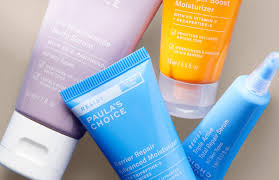
Beta-Sitosterol in Skin Care: The Vegan Cholesterol Your Skin Deserves
In the realm of skincare, cholesterol plays a crucial role in hydrating and repairing the skin’s natural barrier.
However, cholesterol is derived only from animals, making it unsuitable for vegan skincare products.
This is where beta-sitosterol shines—a plant-based, vegan alternative that offers many benefits beyond cholesterol.
What Exactly Is Beta-Sitosterol?
Beta-sitosterol is a phytosterol, meaning it’s a plant-derived sterol that structurally resembles cholesterol. It’s commonly found in plants such as nuts, seeds, and vegetable oils.
Unlike cholesterol, beta-sitosterol is vegan-friendly but mimics cholesterol’s functions in the skin.
While cholesterol helps hydrate and restore the skin barrier, beta-sitosterol adds extra benefits, including anti-aging and antioxidant properties.
It’s a multitasking ingredient perfect for dry, sensitive, and aging skin types.
Why Is Beta-Sitosterol Important in Skin Care?
Cholesterol is a vital lipid that helps maintain the skin’s barrier and hydration. However, since it is animal-derived, it can’t be used in vegan skincare products.
Beta-sitosterol serves as a plant-based substitute that achieves similar results while aligning with vegan and cruelty-free ethics.
This makes beta-sitosterol particularly valuable for consumers who want effective skincare without compromising on ethical or dietary choices.
How Does Beta-Sitosterol Benefit Your Skin?
Beta-sitosterol supports your skin through multiple mechanisms:
Barrier Repair: It helps rebuild and strengthen the skin’s protective barrier, which is essential for preventing moisture loss and shielding from irritants.
Moisturization: Beta-sitosterol stimulates the production of hyaluronic acid, a powerful molecule that binds water and keeps the skin plump.
Anti-Aging: It acts as an antioxidant, neutralizing free radicals that cause wrinkles and premature skin aging.
Eczema Relief: Beta-sitosterol helps soothe eczema and other skin conditions by repairing damaged skin and reducing inflammation.
Sun Damage Protection: It scavenges harmful free radicals caused by UV radiation, helping prevent cellular damage.
Beta-Sitosterol vs. Cholesterol: What’s the Difference?
While both molecules help repair the skin barrier and hydrate, cholesterol comes only from animal sources, which excludes it from vegan and many ethical skincare lines.
Beta-sitosterol performs the same barrier-repairing and moisturizing roles but is plant-based.
It also offers added benefits like anti-inflammatory and antioxidant effects, making it superior in certain skincare contexts.
Moisturizing Power of Beta-Sitosterol
Beta-sitosterol hydrates skin through four main methods:
It actively strengthens the skin barrier to prevent water loss.
It increases hyaluronic acid synthesis, which binds water molecules within the skin.
It travels through aquaporin channels in skin cells, allowing quick penetration and hydration.
It promotes expression of filaggrin, a protein that helps break down skin cells for better moisture retention.
This multifaceted approach sets beta-sitosterol apart from many other moisturizers that usually work via only one or two mechanisms.
Beta-Sitosterol for Dry Skin
If your skin is dry or prone to irritation, beta-sitosterol can be a game changer. Dry skin often results from a weakened skin barrier that lets moisture escape.
Beta-sitosterol’s ability to repair and reinforce this barrier makes it highly effective. Its moisturizing effects are long-lasting and deep, offering hydration at multiple skin levels.
This ingredient is widely used in eczema treatments due to its soothing and barrier-repairing qualities.
Beta-Sitosterol’s Anti-Aging Benefits
Skin aging is largely caused by free radicals—unstable molecules generated by UV exposure, pollution, and other environmental factors.
These free radicals damage collagen, elastin, and DNA in skin cells, accelerating wrinkles and sagging.
Beta-sitosterol is a potent antioxidant that neutralizes free radicals before they can harm skin cells. This reduces the visible signs of aging and promotes healthier, firmer skin.
However, beta-sitosterol works best when combined with collagen-stimulating ingredients such as salicylic acid, glycolic acid, retinoids, or azelaic acid.
Together, they support skin renewal and wrinkle reduction.
Beta-Sitosterol and Sun Damage Protection
UV radiation causes free radical production in the skin, leading to oxidative stress and premature aging.
Beta-sitosterol scavenges these harmful ions, complementing the protective effects of sunscreens. Its antioxidant activity reduces inflammation and helps prevent DNA damage caused by sun exposure.
Incorporating beta-sitosterol in daytime skincare, especially in sunscreen products, can boost overall skin defense against UV damage.
Safety and Side Effects of Beta-Sitosterol
Beta-sitosterol is considered extremely safe for all skin types. The Cosmetic Ingredient Review (CIR) panel classifies beta-sitosterol and other phytosterols as safe ingredients in skincare.
The Environmental Working Group (EWG) rates beta-sitosterol with a “1” on their safety scale, indicating it is non-toxic and environmentally sustainable.
Allergic reactions to beta-sitosterol are very rare. It is non-mutagenic and poses no toxicological risks.
Beta-sitosterol is safe to use during pregnancy and breastfeeding, making it a clean and reliable choice for sensitive skin.
How to Incorporate Beta-Sitosterol Into Your Routine
Look for skincare products that list beta-sitosterol in their ingredients, especially:
Moisturizers designed for dry, sensitive, or eczema-prone skin.
Anti-aging creams and serums.
Sunscreens with antioxidant benefits.
Pair beta-sitosterol with other active ingredients suited to your skin goals, such as:
Hyaluronic acid for hydration boost.
Retinoids or peptides for wrinkle reduction.
Ceramides and fatty acids for barrier support.
Alternatives to Beta-Sitosterol
If you prefer other moisturizing or antioxidant options, consider:
Glycerin: A classic humectant that attracts water to the skin.
Jojoba oil: A plant oil that mimics the skin’s natural sebum, nourishing without clogging pores.
Safflower oil: High in linoleic acid, excellent for dry and inflamed skin.
Avocado oil: Rich in vitamins A, D, and E, offering deep nourishment.
Each ingredient has its own strengths; beta-sitosterol stands out because of its versatility and multifunctional role.
Final Thoughts
Beta-sitosterol is an exceptional vegan ingredient that delivers hydration, barrier repair, anti-aging, and protection from environmental stressors—all in one.
If you want a powerful yet gentle plant-based ingredient that can replace animal-derived cholesterol in your skincare, beta-sitosterol should be on your radar.
Whether you have dry, aging, or sensitive skin, beta-sitosterol offers comprehensive support to keep your skin healthy, resilient, and youthful.
Ready to find the perfect beta-sitosterol product for your skin? Take a skin type quiz to personalize your routine and shop the best formulations!
When selecting products with beta-sitosterol, it’s important to consider your skin type, whether oily, dry, combination, or sensitive,
to ensure you choose formulations that complement your unique skin needs and deliver optimal results.
Incorporating beta-sitosterol into your daily skincare routine can enhance the effectiveness of other active ingredients by maintaining a healthy skin barrier,
which improves absorption and minimizes irritation from more potent actives.
Many formulations combine beta-sitosterol with soothing agents like allantoin or panthenol,
creating a balanced product that not only repairs but also calms inflamed or reactive skin for a comfortable, hydrated complexion.
Because beta-sitosterol supports the synthesis of natural moisturizing factors, regular use can help reduce transepidermal water loss, leaving skin feeling softer, smoother,
and more resilient to environmental stressors over time.
Beta-sitosterol’s ability to penetrate deeply through aquaporin channels enables it to deliver hydration beyond the skin’s surface, making it highly effective in combating dryness in the deeper layers of the epidermis.
Beyond moisturization, beta-sitosterol’s antioxidant properties help defend against oxidative stress from pollution and blue light exposure, which are increasingly recognized contributors to premature skin aging and dullness.
Users with eczema or psoriasis may find beta-sitosterol-containing products beneficial, as its barrier-repair and anti-inflammatory effects can reduce itching, redness, and irritation while promoting faster healing.
While beta-sitosterol is gentle enough for daily use, those introducing multiple new actives should always patch test first to observe how their skin responds, ensuring a safe and effective skincare experience.
Research continues to explore beta-sitosterol’s broader potential, including its role in modulating inflammatory pathways and supporting overall skin immune health, hinting at future therapeutic uses in dermatology.
Ultimately, beta-sitosterol’s versatility, safety, and multifunctionality make it a standout ingredient in modern skincare, especially for consumers seeking effective, clean,
and cruelty-free products that respect both skin and planet.


